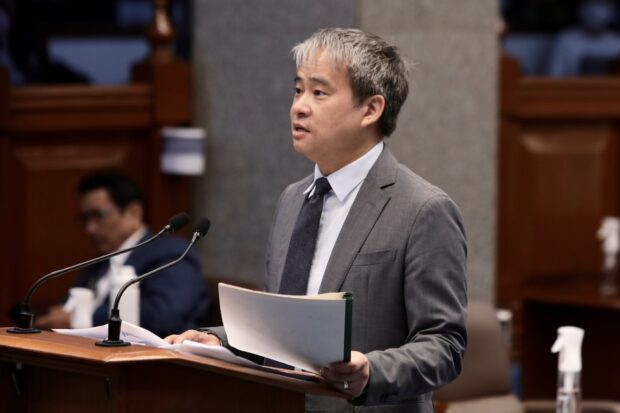
Senate Majority Leader Joel Villanueva. Senate PRIB file photo
MANILA, Philippines — Although the K-12 program aligns the Philippine education system with that of the world, Senate Majority Leader Joel Villanueva on Thursday said it still needs “constant updating” to keep up with emerging issues in and beyond the job market.
Villanueva made the remark in light of renewed calls for a review of the K-12 program and the curriculum in basic education, technical and vocational education and training, and higher education.
But these, he noted, are already being done by the Second Congressional Commission on Education (Edcom 2).
“While we still believe that the K-12 curriculum remains in line with education systems worldwide and ensures mobility of Filipinos, especially access to universities abroad, it also needs constant updating to reflect changes in our job market and to adapt to the post-pandemic realities and opportunities,” the senator told reporters.
Aside from the curriculum review, Villanueva said the Edcom 2 is also working on improving learning outcomes, learning assessments, quality of teachers, coordination among education sub-sectors, education financing, employability of graduates, among others.
“We expect to see bigger and better reforms in our education system once the work of Edcom 2 is complete,” he added.
Edcom 2 and the Department of Education (DepEd), headed by concurrent Vice President Sara Duterte, earlier convened to discuss policies and chart a plan that would upgrade the country’s education sector.
Some senators had pointed out the need to urgently address the problem of fresh graduates lacking “soft skills” and practical expertise, especially after the Commission of Human Rights revealed these among the challenges faced by new job seekers during the pandemic.
Among their recommendations were to conduct an “honest-to-goodness review” of the K-12 program.
Early this year, DepEd committed to revise the K-12 program after they found its curriculum to be “congested.” — with reports from Aliah Gumasing, INQUIRER.net trainee
RELATED STORY:
Job hunt tough for graduates of ‘pandemic generation’

